The troubling behaviour of Bangladesh’s lawyers

In recent times, we have witnessed alarming incidents where leaders of the previous government were attacked on court premises. Disturbingly, these attacks were often carried out by lawyers. For instance, in the cases of former Law Minister Anisul Huq and former Adviser to PM Salman F Rahman, news reports indicate that lawyers present in the courtroom prevented their legal representatives from defending them. This troubling trend of lawyers engaging in physical altercations both inside and outside the courtroom is becoming increasingly common.
Despite some public and media outcry, this behaviour is not new in Bangladesh. Lawyers have exhibited such transgressions for a long time, raising serious questions as to whether they are fit to practise law. Fundamentally, lawyers are officers of the court, with their primary loyalty to the court, followed by their clients and personal beliefs. They are meant to assist in the administration of justice. The right to legal representation is a fundamental human right, enshrined in Article 31 of our constitution, which guarantees a fair trial. Section 340 of the Code of Criminal Procedure (CrPC) also ensures that every defendant can be represented by counsel in criminal proceedings. Moreover, it is a basic principle that no one should be physically harmed, a fact that should be self-evident to any lawyer.
Representing an accused does not imply that the accused will be declared innocent or that charges will be dropped. Lawyers are tasked with ensuring that their clients receive justice, and if convicted, that the conviction is justified and the punishment appropriate. Therefore, there should be no objection to any accused being represented by a lawyer, regardless of the alleged crime.
However, some lawyers believe that certain accused individuals should not be represented in court. In some bar associations, official decisions dictate that if the plaintiff or complainant is a lawyer from that bar, no other lawyer will represent the accused. Similar but unofficial rules exist in other such associations. In some instances, bar association leaders have decided that no lawyer will represent a specific person, and when any lawyer attempts to do so, they are harassed by their peers in court.
The situation has escalated to the point where physical attacks on accused individuals in court premises have become more frequent. For example, former Justice AHM Shamsuddin Choudhury Manik was reportedly attacked so severely that he required surgery. Such actions, carried out in front of cameras, are serious offences. Yet, the perpetrators seem to believe they will face no consequences and that this behaviour is normal. Following some disruptive incidents during the hearings of Hasanul Haq Inu and Rashed Khan Menon, a senior lawyer remarked that he had not witnessed such unprecedented behaviour in his 33 years of practice. While his statement may contain some exaggeration, it underscores the severity of the issue.
Such practices persist due to a lack of accountability. To my knowledge, no lawyer has been punished for such actions. The Bangladesh Bar Council, which is the regulatory body, has not taken action against these decisions or the activities of individual lawyers. The leaders of the bar Council and bar associations have not condemned these actions either.
Bar association leaders are elected and often invest heavily in their campaigns. Once elected, they seek to recoup their investments by handling numerous bail hearings and other cases, leveraging their official positions. There is little transparency in their decision-making processes. For example, the allocation of rooms in the bar association building is often based on lobbying and party affiliation. The Supreme Court Bar Association, the top bar in Bangladesh, is no different. These leaders primarily serve their political parties and remain silent on serious violations of the rule of law, such as extrajudicial killings. Unlike in some other countries, our bar associations do not engage with other stakeholders to discuss justice administration or suggest statutory amendments.
" layout="left"]The actions of these lawyers and their leaders indicate a fundamental disregard for the judicial process. Hence, the question arises: should these lawyers be allowed to practise law at all? By failing to address such behaviour, we are implicitly encouraging it.
Lawyers play a crucial role in society, and public perception of the justice system is closely linked to their conduct. If the general public sees lawyers violating the law, it will erode faith in the judicial process, which is detrimental to the country.
In the new Bangladesh, such behaviour should not be tolerated. Perpetrators must be punished, and the bar Council should take action to suspend these lawyers. The Supreme Court can issue suo moto rules for their punishment. The Attorney General's Office and the law ministry should condemn these activities, and political parties should expel these lawyers from their ranks.
Osman Goni is advocate at the Supreme Court of Bangladesh.
Views expressed in this article are the author's own.
Follow The Daily Star Opinion on Facebook for the latest opinions, commentaries and analyses by experts and professionals. To contribute your article or letter to The Daily Star Opinion, see our guidelines for submission.

 For all latest news, follow The Daily Star's Google News channel.
For all latest news, follow The Daily Star's Google News channel. 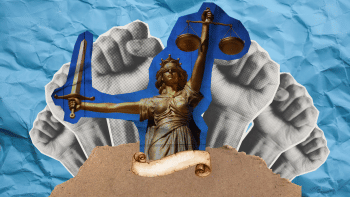



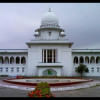
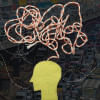
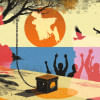

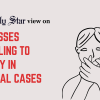


Comments